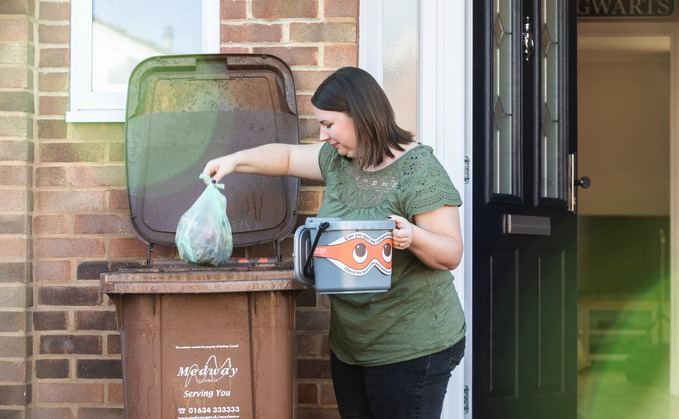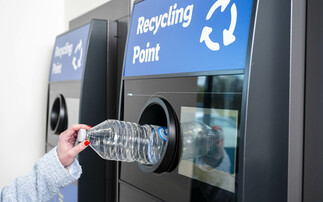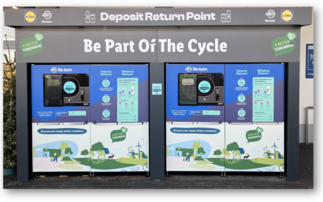Credit: Compostable Coalition UK
Behaviour change trial aims to inform government plans to make food waste collection mandatory, trade body says
Households are able to correctly dispose of compostable packaging, providing product labelling is clear, a new trial has found.
A six-week behaviour change trial managed by a compostable packaging trade association resulted of a five-fold increase in consumers disposing of their compostable packaging in the food waste bin.
The Compostable Coalition UK project saw 120 households in Kent sent confectionary, snack food, fresh produce, tea bags, and coffee pods in both compostable and plastic packaging, so as to test consumers' ability to dispose of the products in the correct waste stream.
Participants were also provided with educational resources, which set out how to check packaging labels and use their food waste bins.
Compostable Coalition UK said the labelling and resources had helped households to correctly identify and dispose of compostable packaging.
Durig the trial the amount of food discarded in the food waste bin increased by 23 per cent, while contamination levels in the food and garden waste bins dropped on average from nine per cent to just three per cent.
"The results of our study clearly prove that once consumers are provided with a label that positively instructs them where to discard such packages, their ability to behave accordingly increased dramatically," said Julia Schifter, co-founder of the Compostable Coalition. "Moreover, it also increased their overall disposal of food waste in the food waste bin while significantly reducing contamination. "
The disposal of compostable packaging in the food and garden waste bin is not currently mandatory nationally, with advice varying between local authorities. Compostable packaging can be disposed of with food waste for processing using anaerobic digestion plants, which produce biogas and digestate that can be used as fertiliser. But concerns over organic waste streams being contaminated by plastic packaging has led some councils to ban compostable packaging from food waste collections.
The government announced last autumn it would mandate the collection of food waste from all households across England by 2026.
The Compostable Coalition UK - which brings together a broad range of stakeholders from the compostable packaging sector - said its trial was designed to provide the government with more evidence of how compostables can be successfully collected with food waste to inform future guidelines.
"These results, among other studies conducted by the Compostable Coalition UK, are aimed at servicing the Department for Environment, Food and Rural Affairs (Defra's) future policy direction on compostable plastics and their role in addressing the planetary plastics waste crisis," Schifter said.
Both the educational resources and compostable packaging used in the trial was produced by environmental charity Hubbub, with input from environmental labelling and certification scheme OPRL.
Alice Harlock, director of technical and member services at OPRL, said the trial "reinforces the message" that providing consumers with clear, visible labels could have have a positive impact on both participation and contamination.
"The findings of the pilot back up OPRL's own consumer research, which shows that consumers look for information on recycling at the point of disposal," she said. "In our survey, the majority - 54 per cent - also reported that the greatest barrier to recycling was confusion over whether items were recyclable. So, we can be confident that tackling confusion with clear labels and instructions will help to drive greater volumes of material for recycling."
The Compostable Coalition announced the results of the behaviour change trial as it also published findings from a separate trial at one of the largest composting sites in the UK, EnVar in Cambridgeshire.
It saw 13 tonnes of compostable items, including coffee pods, tea bags, fresh produce packaging, twist wraps, snack food packaging, and single use service-ware, tested for their ability to biodegrade under the normal operating conditions of an industrial composting site.
The results showed the products supplied in their ready-to-use state biodegraded successfully, with the finished compost passing PAS100 certification, the high-quality standard for compost in the UK.
Want to understand what is going on at the cutting edge of sustainability? Check out BusinessGreen Intelligence - the premier information for professionals focused on the UK's green economy.










